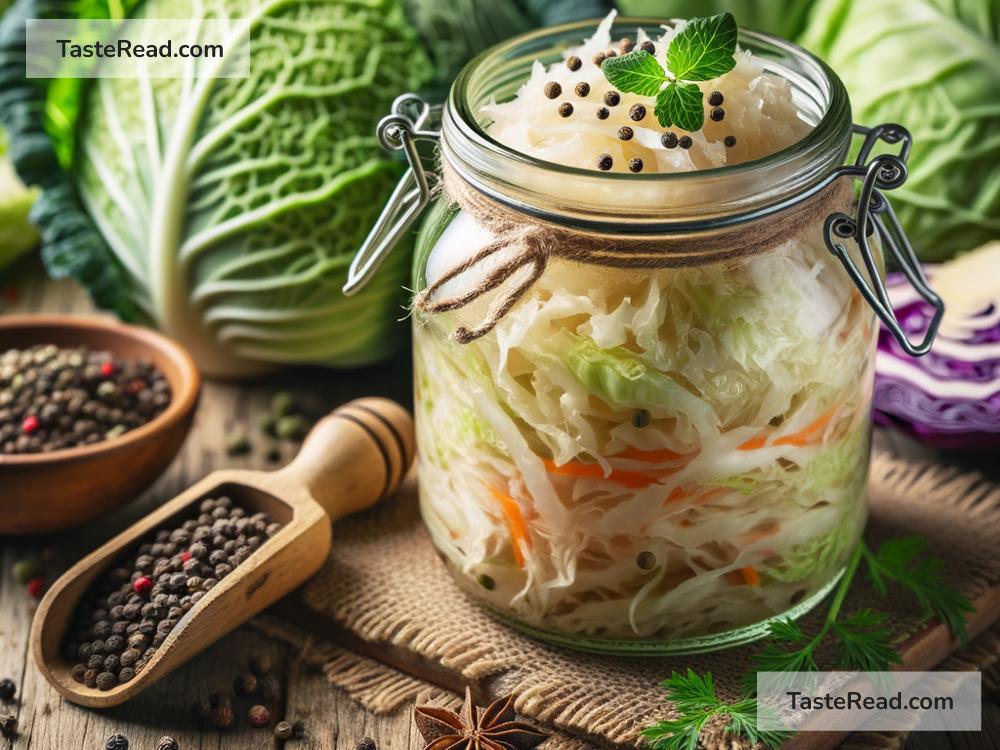The Surprising Role of Cabbage in Fermentation and Gut Health
When you think of cabbage, you might picture coleslaw at summer barbecues or a bowl of hearty soup during chilly nights. But did you know this humble vegetable plays a superstar role in fermentation and gut health? It’s true! Cabbage is not just a tasty, crunchy ingredient; it’s a secret weapon for creating fermented foods packed with nutrients and beneficial bacteria. In this blog, we’ll explore the fascinating connection between cabbage, fermentation, and your gut health in simple terms.
What Is Fermentation?
Before diving into cabbage, let’s talk about fermentation. Fermentation is a natural process where microorganisms, like bacteria and yeast, break down sugars in food and transform them. Think of fermentation as nature’s way of preserving food while boosting its nutritional content. It’s been used for thousands of years to make foods like yogurt, bread, beer, and—you guessed it—fermented cabbage dishes like sauerkraut and kimchi.
The magic of fermentation lies in probiotics. Probiotics are live bacteria and yeast that are good for your gut. They help keep your digestive system happy, improve nutrient absorption, and even support your immune system.
Why Cabbage?
Cabbage is one of the best vegetables for fermentation, and here’s why:
-
Perfect Texture for Fermentation
Cabbage is sturdy and full of water, making it ideal for fermentation. When shredded, its layers trap moisture, which helps kickstart the fermenting process. Those crunchy leaves turn into soft, tangy goodness after fermentation. -
Rich in Nutrients
Raw cabbage is already a nutritional powerhouse. It’s loaded with vitamin C, vitamin K, fiber, and antioxidants. When fermented, these nutrients become even more bioavailable, meaning they’re easier for your body to absorb. -
Naturally Supports Probiotics
Cabbage carries bacteria on its surface that are perfect for fermentation. When you mix it with salt, the salt pulls water and sugar out of the cabbage, providing food for these healthy bacteria to multiply. The result? A probiotic-rich food that supports gut health.
Gut Health: Why It Matters
Your gut is more than just a part of your digestive system. Your gastrointestinal tract—or “gut”—is home to trillions of microorganisms, collectively called the gut microbiome. These tiny organisms play a big role in your overall health.
Here’s why gut health matters:
- It helps digest food and absorb nutrients.
- It regulates your immune system.
- It influences your mood, brain function, and even sleep through a connection called the gut-brain axis.
- It protects against harmful bacteria and infections.
A healthy gut is all about balance—having enough good bacteria to keep the bad ones in check. This is where fermented cabbage comes in. The probiotics found in fermented foods like sauerkraut and kimchi help add good bacteria to your gut microbiome, keeping everything running smoothly.
Sauerkraut: Cabbage’s Star Role in Fermentation
One of the most popular ways cabbage helps your gut is through sauerkraut. Sauerkraut is simply fermented cabbage, and it’s been a favorite food in Europe for centuries. Making sauerkraut is surprisingly easy: you shred cabbage, massage it with salt, and let it sit in a jar at room temperature. Over a few days or weeks, natural bacteria break it down, creating tangy, salty goodness.
Here’s how sauerkraut helps your gut:
-
Probiotic Boost
Sauerkraut is brimming with probiotics that replenish your gut microbiome. Adding a small serving to your meals can help improve digestion. -
Reduced Inflammation
Fermented cabbage has compounds that help lower inflammation, which is important for gut health and overall wellness. -
Improved Digestion
Sauerkraut’s probiotics make it easier for your stomach to break down food, reducing bloating and indigestion.
Kimchi: A Spicy Probiotic Hit
Cabbage also shines in kimchi, a Korean dish made with fermented vegetables, spices, and usually napa cabbage. Kimchi is spicy, tangy, and slightly sweet—a flavor explosion. But it’s also a nutritional powerhouse, with probiotics, fiber, and antioxidants.
Kimchi includes garlic, ginger, and chili, each of which has health benefits of its own. Combined with fermented cabbage, it packs a punch for gut health.
How to Add Fermented Cabbage to Your Diet
Here are some simple ways to enjoy fermented cabbage:
-
As a Side Dish
Scoop a spoonful of sauerkraut or kimchi and serve it alongside scrambled eggs, grilled chicken, or rice bowls. -
In Sandwiches or Wraps
Add a bit of sauerkraut to your turkey sandwich or veggie wrap for extra crunch and flavor. -
In Soups or Stir-Fries
Toss kimchi into soups or stir-fries for a spicy kick. -
Straight from the Jar
If you’re feeling adventurous, enjoy a bite straight from the jar!
Final Thoughts
Cabbage may not be the flashiest vegetable, but its role in fermentation and gut health is truly impressive. Whether you’re enjoying tangy sauerkraut or spicy kimchi, fermented cabbage is one of the easiest ways to improve your gut health naturally. Packed with probiotics, nutrients, and flavor, these foods prove that simple ingredients can have a big impact.
So next time you see a head of cabbage at the grocery store, think beyond coleslaw. It could be the key to better digestion, a stronger immune system, and a happier gut. Embrace the power of cabbage and let fermentation work its magic!


